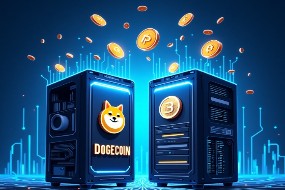Blockchain and Web 3.0 are more than just technological upgrades
What is Blockchain?
At its core, Blockchain is a distributed digital ledger that records transactions across a network of computers. Each block contains data, a timestamp, and a cryptographic hash of the previous block, ensuring transparency and immutability.
Key Features:
Decentralization: No single authority controls the network.
Transparency: Every transaction is visible to participants.
Security: Tamper-proof and encrypted using cryptographic methods.
Immutability: Once data is added, it cannot be altered.
Blockchain isn’t just about cryptocurrencies like Bitcoin and Ethereum. It underpins a wide array of applications, from smart contracts and supply chain management to healthcare and voting systems.
🌐 What is Web 3.0?
Web 3.0, often referred to as Web3, is the next phase of internet evolution. It aims to create an open, trustless, and permission less network by leveraging blockchain and decentralized protocols.
Evolution of the Web:
Web 1.0: Static, read-only websites.
Web 2.0: Interactive, user-generated content (social media, blogs, etc.)
Web 3.0: Decentralized apps (dApps), user ownership, smart contracts, and token economies.
🌟 Future Benefits of Blockchain and Web 3.0
As Blockchain and Web 3.0 technologies mature, they promise a future where digital life is more empowering, secure, and fair. Here are some of the top benefits we can expect:
🔐 1. True Data Ownership
Say goodbye to tech giants owning and selling your data. With Web 3.0, you control your digital identity, assets, and content — deciding who can access it and how it's used.
💸 2. Decentralized Finance (DeFi)
No more relying on banks or intermediaries. DeFi platforms allow peer-to-peer lending, borrowing, and investing, making financial services more accessible, inclusive, and transparent.
🌍 3. Global Accessibility
Blockchain removes geographic and financial barriers, enabling anyone with an internet connection to participate in the global economy — even the unbanked.
🤖 4. Smarter, Personalized Experiences
With AI integration, Web 3.0 enables more intelligent and tailored user experiences — without compromising your privacy.
🧩 5. Interoperability Across Platforms
Apps and services built on Web 3.0 can seamlessly communicate and collaborate, allowing a more unified digital ecosystem without data silos.
🏛️ 6. Transparent Governance
DAOs (Decentralized Autonomous Organizations) enable communities to govern projects democratically — no more hidden agendas or centralized control.
🛡️ 7. Enhanced Security
Blockchain’s cryptographic foundation means fewer data breaches, less fraud, and stronger identity verification.
🌱 8. New Economic Models
Earn tokens by contributing to networks, creating content, or even just engaging online. Web 3.0 enables creator-driven economies where value flows directly between users.
"In short, Blockchain and Web 3.0 offer a glimpse into a future where the internet is more open, fair, and human-centered — a place where users truly matter."










Post a comment